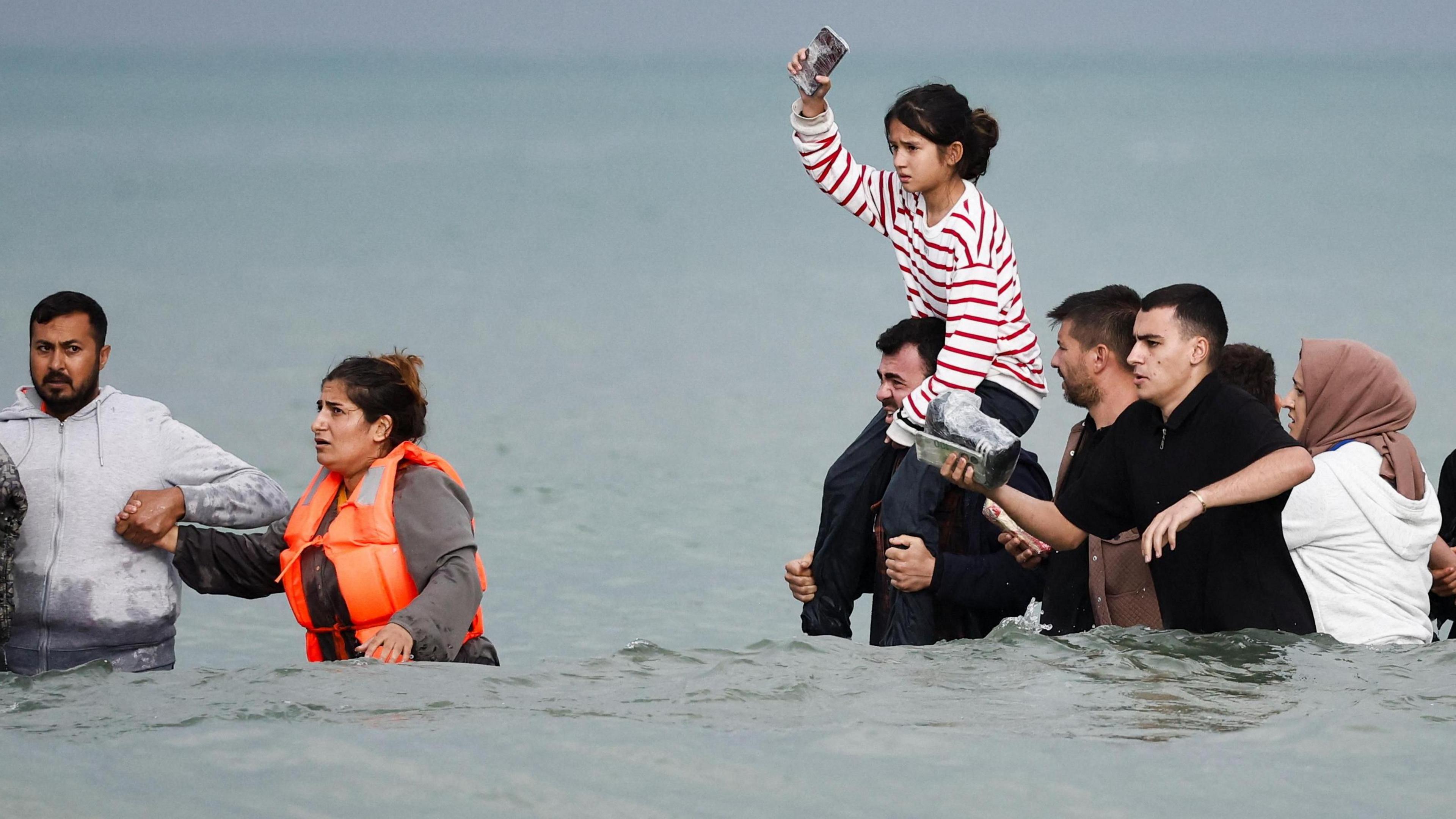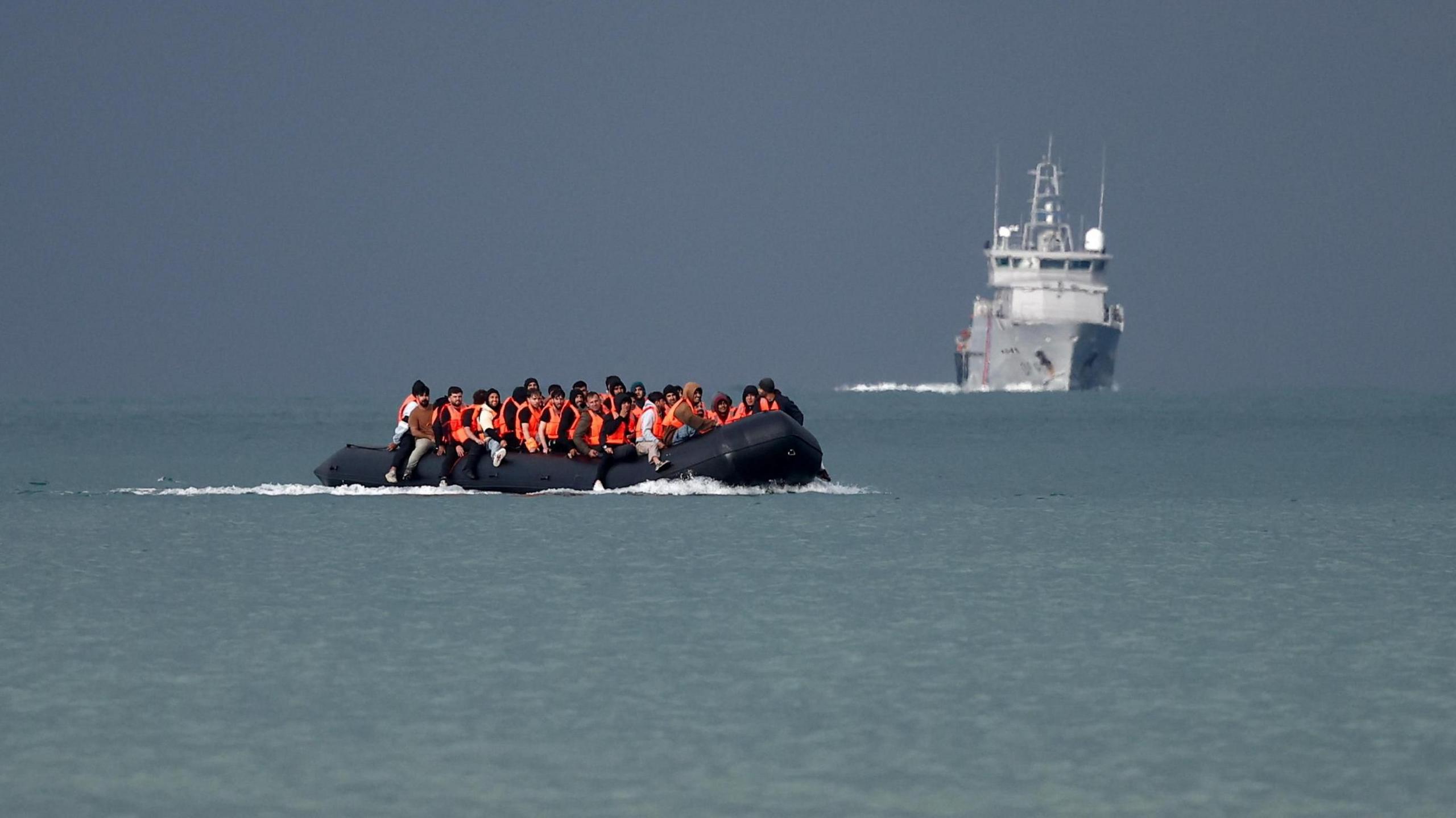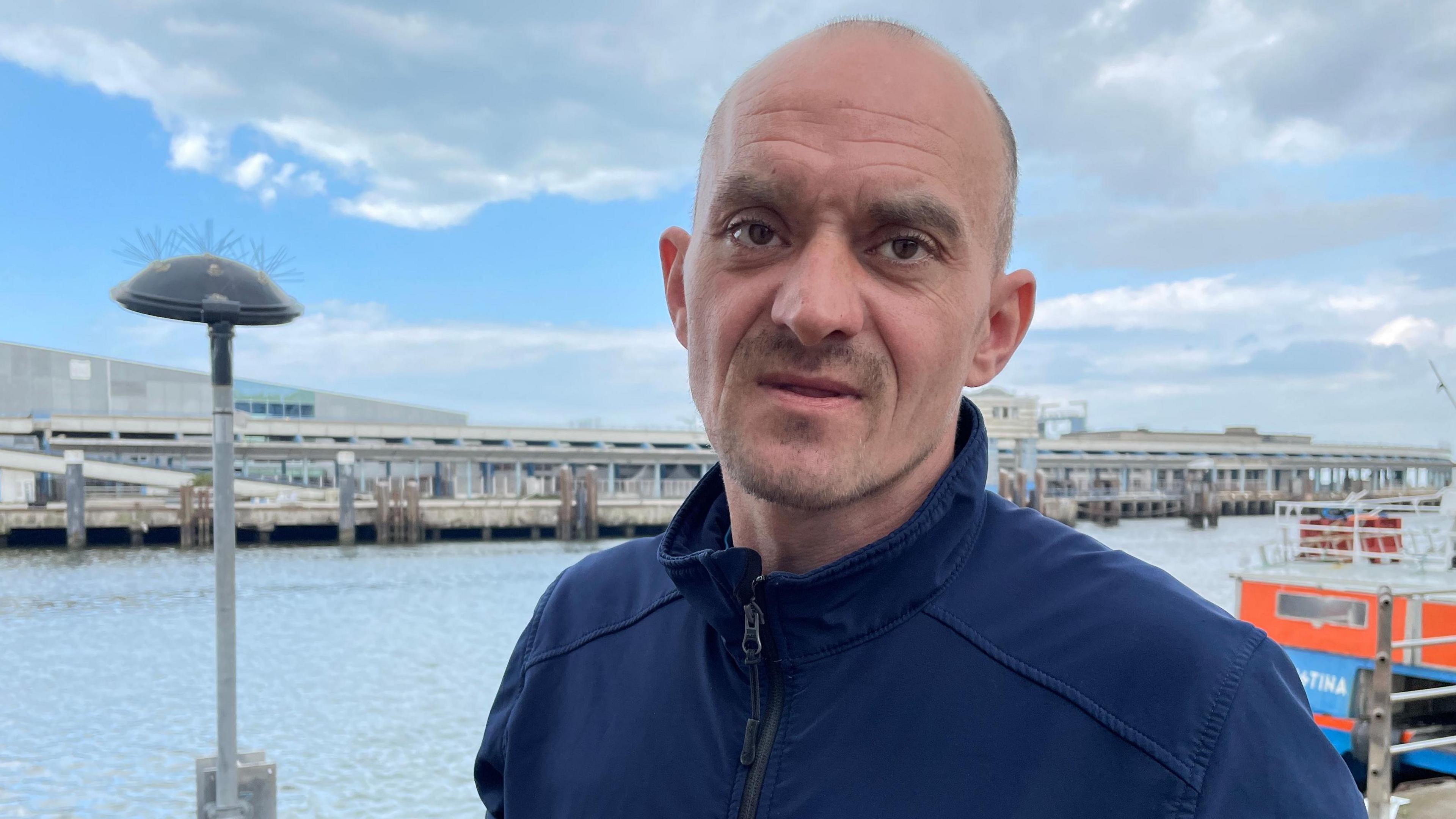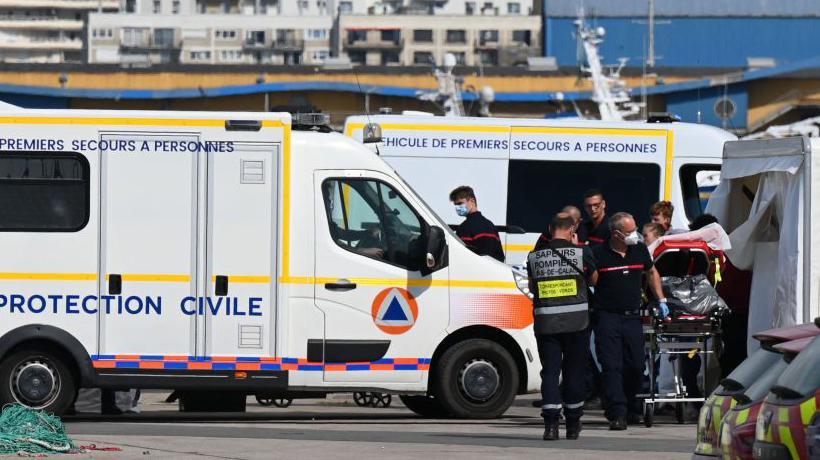Channel drownings fail to deter desperate migrants

Yesterday's tragedy has not deterred today's hopefuls
- Published
Tuesday’s deaths in the English Channel have, as usual, done nothing to deter the smuggling gangs from launching more flimsy, overcrowded boats from the French coastline.
A BBC team watched a packed inflatable craft heading north, close to shore, early on Wednesday morning.
An hour later, a similar boat – very possibly the same one – was seen veering towards a French beach favoured by smugglers near the town of Wimereux to pick up even more paying customers.
French police rushed to intercept the group before they could clamber on board, but arrived moments too late. The boat set off with well over 40 people on it, some standing or clinging to the sides.
While investigations into Tuesday’s disaster continue, local authorities chose to send bulldozers and teams of cleaners to dismantle the makeshift migrant camp outside Calais that was used by many of those who were on the boat that capsized.
“I’m stressed. I knew some of the [dead]. The police have now taken my tent and all my things,” said a 23-year-old Eritrean man who asked us to hide his identity.
French officials have suggested that most - if not all – of those who died were from the troubled east African nation of Eritrea. Many young men have abandoned the country in order to avoid military service.
“I’ve been waiting here a year. I don’t have money [to pay the smugglers]. It happens all the time – the drownings,” said the Eritrean, who remains determined to cross to the UK, believing he can find work there.
Further south, French fishermen who had been involved in Tuesday’s rescue operation, returned to the port of Boulogne with another day’s catch.
Several men told us they had helped to haul bodies from the water, having arrived at the scene less than half an hour after the boat had disintegrated, leaving all those onboard struggling in choppy, cold waters.
“The less we have to talk about that, the less we have to think about it,” said Bruno Hecquet sombrely, as he unloaded boxes of fresh whelks on the quayside.

The risks of longer crossings are passed on to the desperate people hoping to make it to British shores

Bruno Hecquet was one of the fishermen who recovered bodies from the water
“It’s sad. It shouldn’t be happening,” said captain Gaetan Baillet, but he shrugged when asked who was to blame for the rising death toll.
Dany Patoux, from a local migrant charity, Osmos 62, said the smuggling gangs were obviously responsible, but added that the growing militarisation of the French coast was driving those gangs to take ever greater risks – or rather to put their paying passengers at ever greater risk.
“All this extra security forces active on our coastline… the buggies and drones and helicopters… this is achieving nothing but to provoke more deaths. Those migrants who want to cross take ever greater risks,” said Patoux, arguing that more people were forced to cram on to each boat because so many of the inflatables were being destroyed by the police.
While the general mood regarding the migrant crisis here appears to be sombre, and largely sympathetic to those attempting to make the Channel crossing in small boats, some warn that frustration with the rising death toll is starting to reshape public opinion.
The UK must completely close its border or do something to make the crossing safer, said Olivier Barbarin, mayor of Le Portel.
"We can’t keep exposing to such risk all these freedom-loving men and women, who’ve fled war and whose one desire is to reach England.”
- Published4 September 2024
